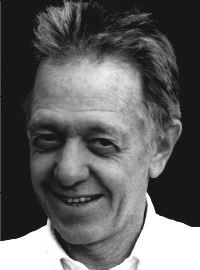
 |
Heiri Schenkel |
Academics, Experience and Interests
CV and Academics:
| 1942 / 1948-1958 | Born in Buenos Aires. Primary and secondary schools in Switzerland |
|
1962 |
Diploma as electrotechnical designer. Swiss maturity diploma |
|
1969 / 1974 |
M.Sc. in experimental physics. / M.Ed. in physics and mathematics education (University of Zürich) |
|
1982 |
Postgraduate diploma in developmental studies (NADEL, ETH Zurich) |
Professional Experience
| 1969-1971 | Industrial resarch in thin film technology |
| 1971-1973 | Physics/mathematics-teacher in the Democratic Republic of Congo in a development project |
| 1974-1977 | Teaching physics/mathematics at Gymnasium Oberwil (Basel, Switzerland) |
| 1977-1980 | Lecturer for didactics of physics/mathematics at Tribhuvan University,Kathmandu, Nepal |
| 1980-2004 | Teaching physics/mathematics at Gymnasium Oberwil (Basel, Switzerland) |
| 1982-2001 | Lecturer for didactics of physics/mathematics at Basel university |
| 1987-1988 | Professor of Physics at South Dakota State University, USA (under Fulbright Exchange Program) |
| 1991 | Sabbathical at the Institute of Geophysics of San José University, Costa Rica |
| 2002-2004 |
Lecturer for Didactics of Physics at ETH, Zürich |
| 2005-2007 | Teaching Physics/Mathematics/Astronomy at Buddhist University of Sera Monastery (Southern India) |
| 2007- | Retirement. Working in different educational and intercultural projects |
Areas of Interest:
Making physics and scientific thinking more attractive for a general public by showing it's interdisciplinary connections, philosophical implications and the usefulness for society - not forgetting the negative aspects of scientific applications. |
||
 |
What does it mean to be "educated"? The importance of the sciences in a humanist education. What does scientific literacy mean? |
|
| Observing, understanding and appreciating natural phenomena, also following the philosophy of Martin Wagenschein. Experiments which are simple, transparent and appealing to the senses and which lead to a deeper reflexion about nature and to the development of models. |
||
| To develop a deeper appreciation of the mystery and beauty of nature and cosmos. To awake more understanding of and compassion with nature, environment and technology. The importance and responsibility of science in environmental issues and for sustainability. . |
||
 |
Improving the mutual understanding and the collaboration between industry, economy and educational institutions. |
|
 |
Connection between education and socio-economic development. Intercultural exchanges for a better understanding of other ways of thinking than the standard western approach, for example the buddhist philosophy. |
|
Language, mind and reality. What does it mean to "understand"? What is scientific "truth"? The philosophy of science and the sociology of scientific communities. |